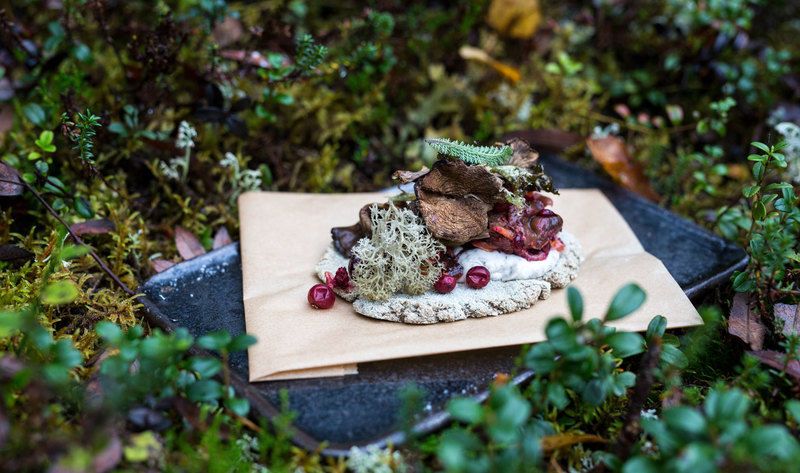
Helsinki’s VILLD Makes Dishes with Foraged Wild Ingredients
Laura McQuarrie — December 11, 2019 — Eco
Helsinki is now home to VILLD, Finland's first all-vegan fine dining restaurant, by self-taught chef and food entrepreneur Ossi Paloneva. Paloneva identified the opportunity to create an experience that combines vegan cooking and fine dining, as the concept hadn't been fully realized before, even with the rise in popularity of plant-based eating.
VILLD sets itself apart by using foraged wild ingredients, local plants and traditional cooking techniques like smoking, dehydrating and fermenting. By using these methods, Paloneva remarks that "We turn the ingredients into powerful multi-sensorial experiences."
Some of the signature plant-based dishes on the restaurant's menu include cold wood sorrel soup with smoked lupin and charred onion, as well as drinks like homemade kombucha and herb cold brew.
Image Credit: VILLD
VILLD sets itself apart by using foraged wild ingredients, local plants and traditional cooking techniques like smoking, dehydrating and fermenting. By using these methods, Paloneva remarks that "We turn the ingredients into powerful multi-sensorial experiences."
Some of the signature plant-based dishes on the restaurant's menu include cold wood sorrel soup with smoked lupin and charred onion, as well as drinks like homemade kombucha and herb cold brew.
Image Credit: VILLD
Trend Themes
1. Vegan Fine Dining - The trend of vegan fine dining is on the rise, as more people seek upscale culinary experiences with plant-based cuisine.
2. Foraged Wild Ingredients - The use of foraged wild ingredients in restaurants is gaining popularity, offering a unique and sustainable approach to sourcing ingredients.
3. Multi-sensory Experiences - Restaurants are increasingly focusing on creating multi-sensory dining experiences by combining unique flavors, textures, and visual presentations.
Industry Implications
1. Restaurant and Hospitality - Restaurants and hospitality businesses have an opportunity to cater to the growing demand for vegan fine dining experiences.
2. Food and Beverage - The food and beverage industry can explore innovative ways to incorporate foraged wild ingredients and sustainable sourcing practices into their products.
3. Culinary Arts Education - Culinary schools and programs can adapt their curriculum to include training on techniques for creating multi-sensory dining experiences with plant-based ingredients.
4
Score
Popularity
Activity
Freshness























